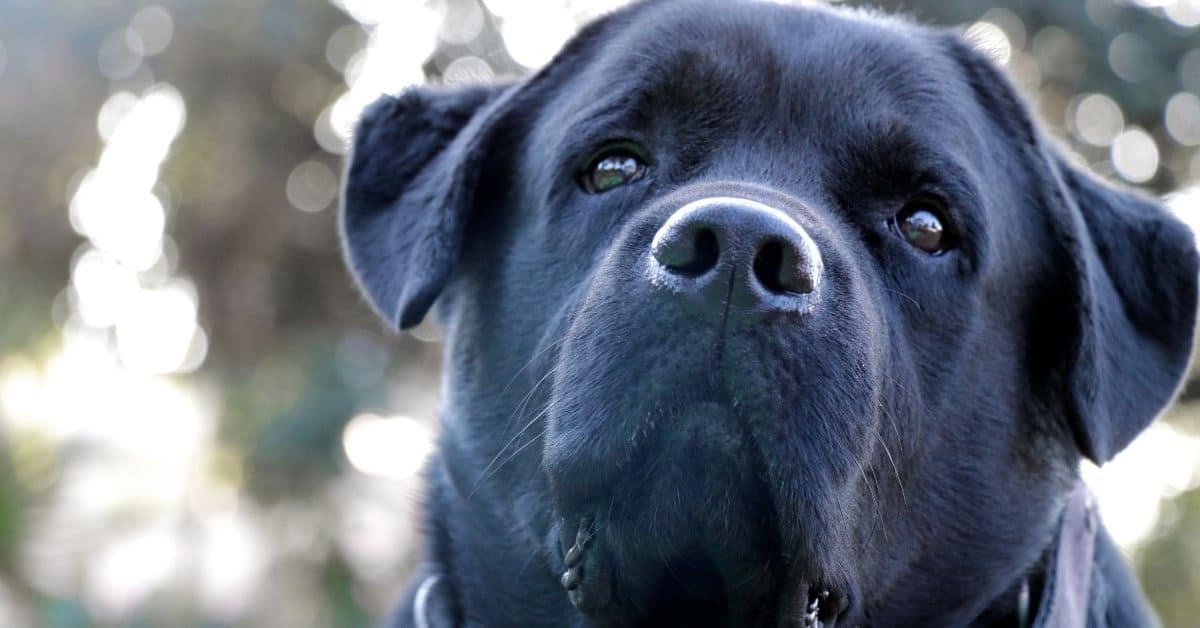Do you ever wonder why your dog is acting strange?
Is there a reason behind all these strange behaviors our furry four-legged friends exhibit daily?
Dogs are fascinating creatures, but sometimes their behavior can leave us scratching our heads.
In this article, you’ll learn about 12 strange things dogs do and explain why these behaviors occur.
Let’s take an interesting journey into what goes on inside a dog’s head!
Chasing Their Tails All The Time
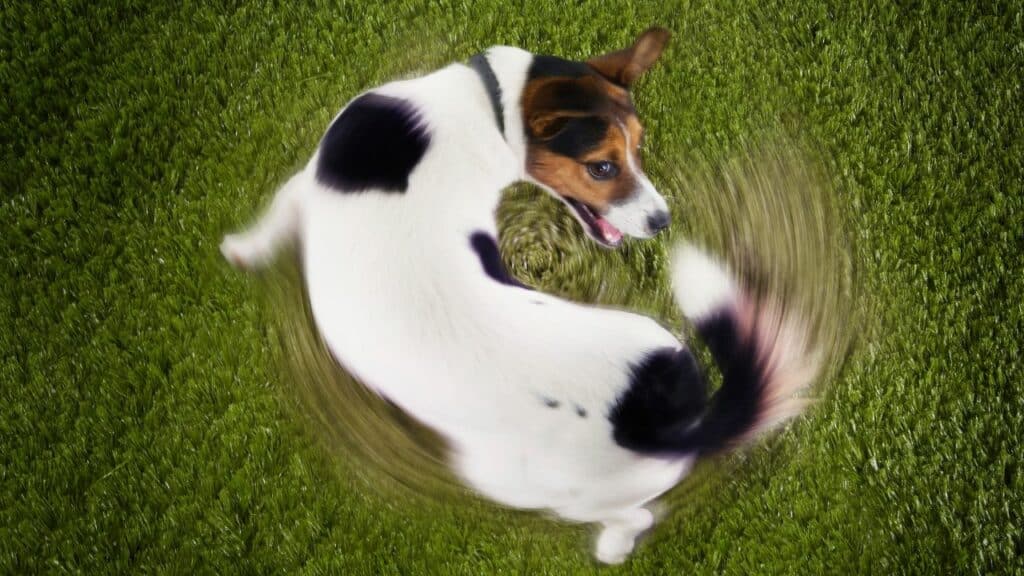
Dogs are known to be curious creatures by nature, and chasing their tails is an example of that curiosity.
Tail-chasing is a behavior that can often start in puppies but also occurs in older dogs.
There can be several underlying causes of why dogs do this, such as being bored, trying to gain attention from their owners, having obsessive-compulsive disorder, or may even stem from a medical concern.
Knowing the underlying cause can help pet parents provide their pups with the necessary help they need.
Ultimately, tail chasing is not harmful if practiced occasionally, but it becomes a problem when it becomes a long time habit of the dog.
If your dog has taken to doing it more frequently, consider contacting your vet and seeking professional help to find out the underlying cause and have it addressed properly.
Sleeping In Weird Positions
Dogs often sleep in seemingly unorthodox positions that may leave owners scratching their heads in confusion.
However, these odd sleeping postures are quite meaningful!
When dogs curl up into a tight ball, they are trying to stay safe and keep their body heat by showing as little skin as possible to the outside world.
Even though all dogs naturally change their body language based on the temperature and how comfortable they are, big dogs with thick coats benefit more from this “insulation” by curling up tight to protect themselves from the weather.
On the other hand, some dogs may sleep completely stretched out instead of curling up to cool off when they get too hot. So don’t be too surprised the next time your dog takes a nap in an odd place.
Eating Grass
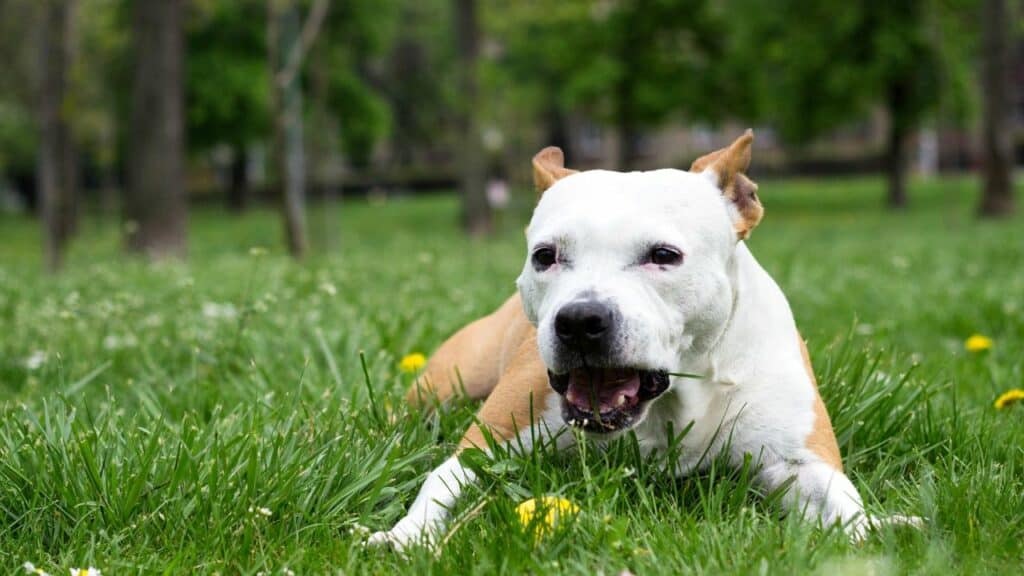
Dogs are omnivorous creatures that can survive on any food, including plants.
Dogs don’t eat grass because they are sick or because their diet is missing something, as many people think.
Some experts think they eat grass because they like the way it tastes and feels.
But it’s also possible that dogs eat grass to help them digest when they’re not feeling well or when they need more fiber in their food.
Some people think it might even be good for dogs for them to eat grass, even though it might not be natural for them to do so.
Dogs Sometimes Eat Their Poop
One surprisingly common yet oddly distasteful behavior among dogs is eating their own feces, known as coprophagia.
While this can be rather unappealing to owners, it’s not necessarily all that unusual and has several potential causes.
Some dogs might find their poop tasty because they don’t get enough amino acids or protein in their food. Other dogs might just be curious and want to check out the world around them.
There are also breed-specific tendencies.
For example, some dogs eat waste because it’s in their nature to do so.
There are easy ways to stop this behavior, such as keeping feces out of reach or adding things to food that make feces taste bad.
Most Adult Dogs Only Urinate Outdoors To Pee – Not To Mark Their Territory As Some People Think
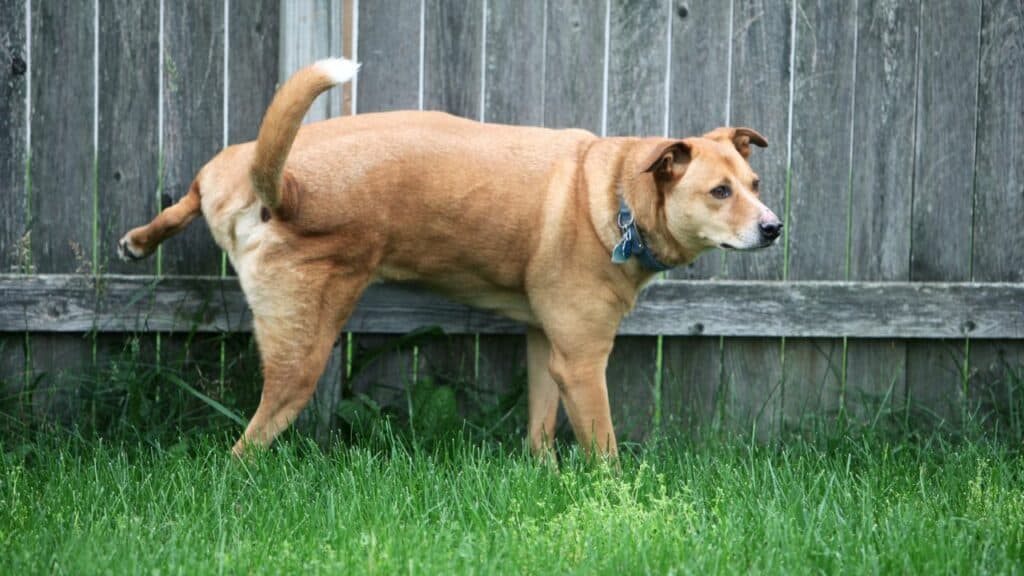
Contrary to popular belief, adult dogs will typically only urinate outdoors because they need to use the bathroom and not to mark their territory.
While some urine markings may occur among two canine house-mates, this is more a way of communicating with each other than a need for scent-marking turf boundaries.
And while territorial urine marking may be seen in male dogs particularly, this generally occurs when challenged by an unfamiliar animal or person.
In either case, indoor pet owners may want to consider instituting house rules about which areas of the home are ok for occasional marking but outside remains the preferred spot for peeing.
Dragging Their Butts On The Floor
Dogs don’t seem too embarrassed to drag their bums on the floor, but it can indicate several underlying health issues.
This behavior is known as scooting, and it may manifest when a dog has anal gland disease, a bacterial infection, or even parasites.
Pet owners must watch out for such behavior in their pets and take them to the vet if they notice any signs of distress or discomfort.
Proper diagnosis and treatment could make all the difference in keeping your pup happy and healthy.
Twitching In Their Sleep

Dogs show many behaviors in their sleep that are similar to those exhibited when conscious and alert, including twitching.
This can be seen as muscle spasms affecting one or more of the body’s extremities.
These cramps often resemble running, chasing cats, or barking at other animals.
Generally harmless, this behavior is attributed to the same brain activity dogs exhibit in their awake state—essentially dreaming with their eyes closed.
Even though it isn’t entirely understood why dogs twitch in their sleep, it’s comforting to know that when it does happen, your pup is simply reenacting something from its super-active waking life!
Staring At You
When a dog stares at their owner, it’s possible it could be trying to express an emotion or communicate what they are thinking.
Staring can indicate that the pup wants something like food, needs to go out for a bathroom break, or simply wants some quality bonding time with its owner.
It’s also possible that they seek acknowledgment and affection when they stare.
Whatever the reason, dog owners should take these moments in stride – eye contact with your pet is healthy and can help develop strong connections between you and your four-legged friend.
Hunching Over
Dogs hunching over can be a worrying sight for pet owners, but there are multiple reasons why this behavior can occur.
Generally speaking, dogs will hunch over for one of three reasons – physical pain, emotional distress, or arousal.
If your dog is in physical pain, hunched-over behavior is often a tell-tale sign that something is wrong, and it’s important to seek veterinary attention as soon as possible.
Suppose the hunched-over posture seems to be rooted in emotional distress. In that case, it could be because of anxiety around new people or animals, fear or submission around an aggressor, or even boredom or tiredness.
Lastly, if you’ve seen your dog do the same thing after exercise or play, it could just be that they’re calming down after being excited and showing signs of arousal.
No matter what is making your dog hunch, noticing it can help you figure out how to care for them best in the future.

Yawing With You
It’s a well-known phenomenon that when one person yawns, people around them often follow suit.
This experience can be shared with our canine companions too.
Dogs yawning with us isn’t just contagious – it turns out they’re engaging in empathy.
Dogs can suffer from stress as humans do, but unlike humans, they don’t have words to express it.
Instead, they communicate it through behaviors like yawning.
So why might your dog yawn with you?
Apart from contagion and empathy, dogs may also attempt to signal submission and demonstrate trust in us. If your dog is comfortable enough to take on the same behavior as you, this may indicate your bond with them.
Dogs can even mimic facial expressions – something that has only been previously seen in chimps!
While not always observable, the science behind dogs copying our emotions is exciting – it’s a perfect example of the depth of communication available between man and man’s best friend!
Many Dogs Bark At Nothing For No Reason
One of the unknowable behaviors is when dogs will suddenly bark at nothing in particular.
Though it may appear that they’re barking at random, this behavior likely has an underlying root cause.
Dogs are very aware of their surroundings and can pick up on everything from people to small changes in the air.
It’s possible that a dog is barking at nothing because it’s picked up on something you can’t feel and is trying to let you know about it.
Dogs are more sensitive to signals they can’t see than people are, which is why they bark at things that seem to come out of nowhere.
Some Dogs Have A Habit Of Licking People’s Faces Incessantly
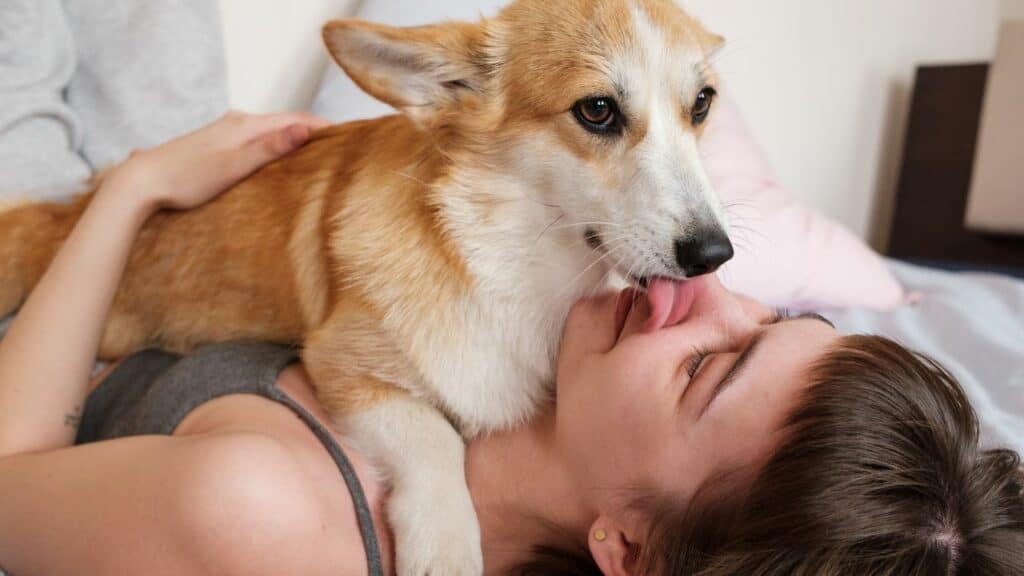
Many people often view face licking as a sign of affection from their pup. However, this behavior can be a sign of dominance.
Dogs will lick their owners’ faces and other canine peers when they want to assert themselves as higher ranking within the pack.
Some dog breeds, in particular, are known for this dominant behavior, such as the Shih Tzu, Bulldog, and Beagle.
Face licking can also get worse if the dog’s owner accidentally encourages it by petting and cooing at the dog while it licks its face in a distressing way. This teaches the dog that these actions are okay.
To get a puppy to stop licking your face all the time, you should move away from it and ignore it until it stops. This will show the dog where it belongs in the pack.
Before You Go…
Knowing the reasons behind dog’s strange behaviors is important for dog owners.
Want to know why your dog is acting weird?
Read our article „Why Is My Dog Acting Weird?“ to discover 14 reasons behind dog’s weird behaviors.

